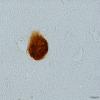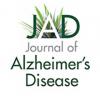5 April 2024
UM Researcher writes about a key issue for the US 2024 elections: Air pollution exposures ought to be of significant interest for US voters
An opinion paper published by University of Montana professor Lilian Calderón-Garcidueñas MD, PhD identifies air pollution risk exposures and the development of Alzheimer’s and Parkinson’s diseases, frontotemporal lobar degeneration (FTLD) and amyotrophic lateral sclerosis (ALS) in exposed populations.
22 March 2024
Dementia care research recognised internationally
Uniting NSW.ACT and UNSW Sydney’s Centre for Healthy Brain Ageing (CHeBA) teamed up to co-author a research paper about the impact of person-centred intervention on the quality of healthcare and clinical outcomes for people living with dementia at Uniting’s War Memorial Hospital with successful results – winning praise, and publication, from the Journal of Alzheimer’s Disease. The research paper concluded the person-centred care model significantly improved clinical outcomes for people living with dementia, after hospitilisation.
22 March 2024
Researchers identify a mutation that alters Alzheimer's disease progression
The scientist of the Faculty of Medicine of the University of Malaga José Luis Royo has coordinated a study that summarizes eight years of research and brings together 100 multidisciplinary specialists, identifying a mutation that alters Alzheimer's disease progression. This work, published in the Journal of Alzheimer’s Disease, has characterized a genetic variant in SIRPβ1 gene, which affects the way in which the immune system fights against beta-amyloid deposits, the cause that leads to this pathology.
15 March 2024
Cleveland Clinic-Led Research Supports Repurposing Sildenafil (Viagra) For Alzheimer’s Treatment
New Cleveland Clinic-led research points to sildenafil (Viagra) as a potential treatment for Alzheimer’s disease. The study provides evidence from computational models, insurance claims data and observations from brain cells in Alzheimer’s patients.
29 February 2024
Unlocking Alzheimer’s secrets
Medical University of South Carolina researchers report in the Journal of Alzheimer’s Disease that worsened anxiety, depression and other neuropsychiatric symptoms predict progression from mild cognitive impairment to full-blown Alzheimer's disease. People with MCI may struggle with thinking and remembering more than their peers but can still carry out everyday tasks, unlike those with AD. These findings highlight the importance of NPS in improving early detection and refining models to predict the progression of AD.
20 February 2024
Double risk of dementia after mouth ulcer virus
People who have had the herpes virus at some point in their lives are twice as likely to develop dementia compared to those who have never been infected. A new study from Uppsala University confirms previous research on whether herpes can be a possible risk factor for dementia.
14 February 2024
Exposure to Agent Orange damages brain tissue in ways similar to Alzheimer’s disease
Agent Orange, an herbicide used during the Vietnam War, is a known toxin with wide-ranging health effects. Even though Agent Orange has not been used for decades, there is increasing interest in its effects on the brain health of aging veterans. A new study by scientists at Brown University reveals the mechanisms by which Agent Orange affects the brain and how those processes can lead to neurodegenerative diseases.
6 February 2024
Unhealthy eating habits tied to Alzheimer's
A study has found a strong link between Alzheimer's disease and the daily consumption of meat-based and processed foods. Researchers at Bond University came to the conclusion after examining the diets of 438 Australians - 108 with Alzheimer's and 330 in a healthy control group. Those diagnosed with Alzheimer’s tended to regularly eat foods such as meat pies, sausages, ham, pizza and hamburgers. They also consumed fewer fruit and vegetables such as oranges, strawberries, avocado, capsicum, cucumber, carrots, cabbage and spinach.
6 February 2024
Did the ancient Greeks and Romans experience Alzheimer’s?
You might think age-related dementia has been with us all along, stretching back to the ancient world. But a new analysis of classical Greek and Roman medical texts suggests that severe memory loss — occurring at epidemic levels today — was extremely rare 2,000 to 2,500 years ago, in the time of Aristotle, Galen and Pliny the Elder. The USC-led research, published in the Journal of Alzheimer’s Disease, bolsters the idea that Alzheimer’s disease and related dementias are diseases of modern environments and lifestyles, with sedentary behavior and exposure to air pollution largely to blame.
8 January 2024
Journal of Alzheimer’s Disease Welcomes New Co-Editor-in-Chief Paula I. Moreira, PhD
The Journal of Alzheimer’s Disease (JAD), published by IOS Press, is pleased to announce the appointment of new co-Editor-in-Chief, Paula I. Moreira, PhD. Dr. Moreira joins Editor-in-Chief George Perry, PhD, and an eminent international editorial board who are dedicated to the continuing success of the world’s leading journal in Alzheimer’s research and treatment.
















